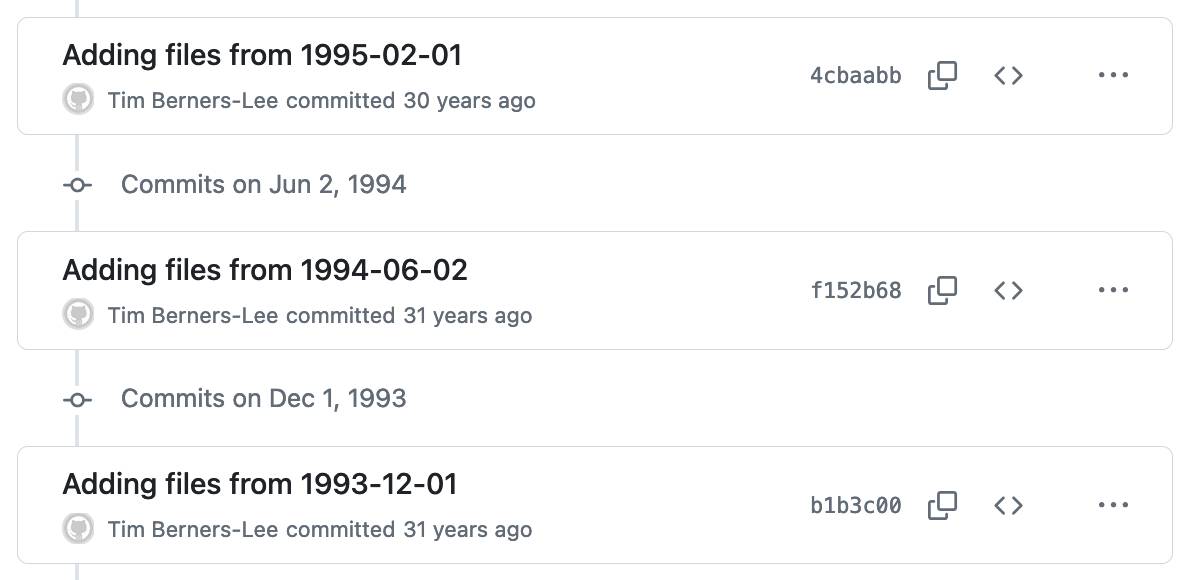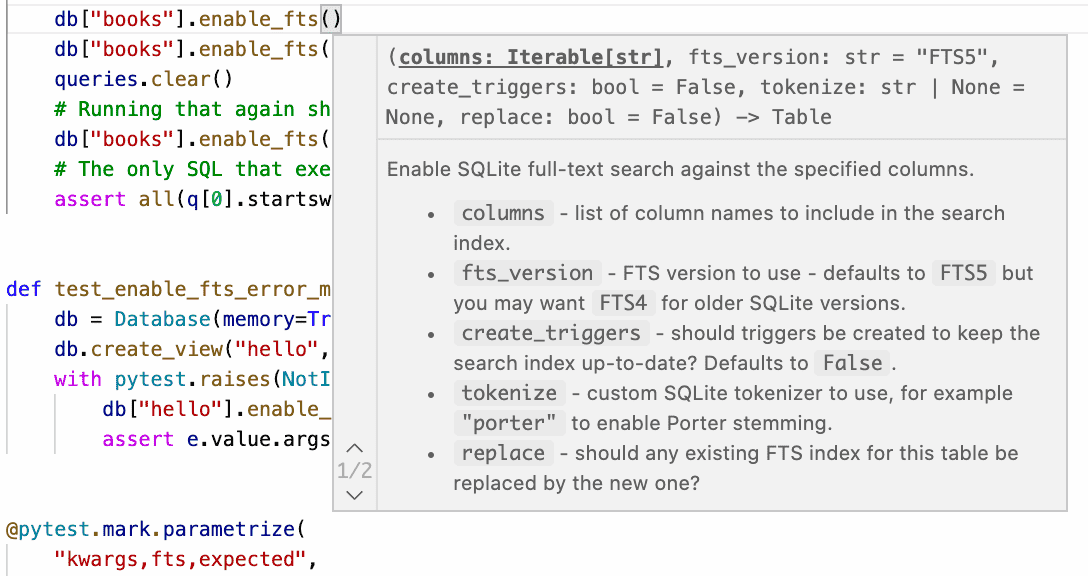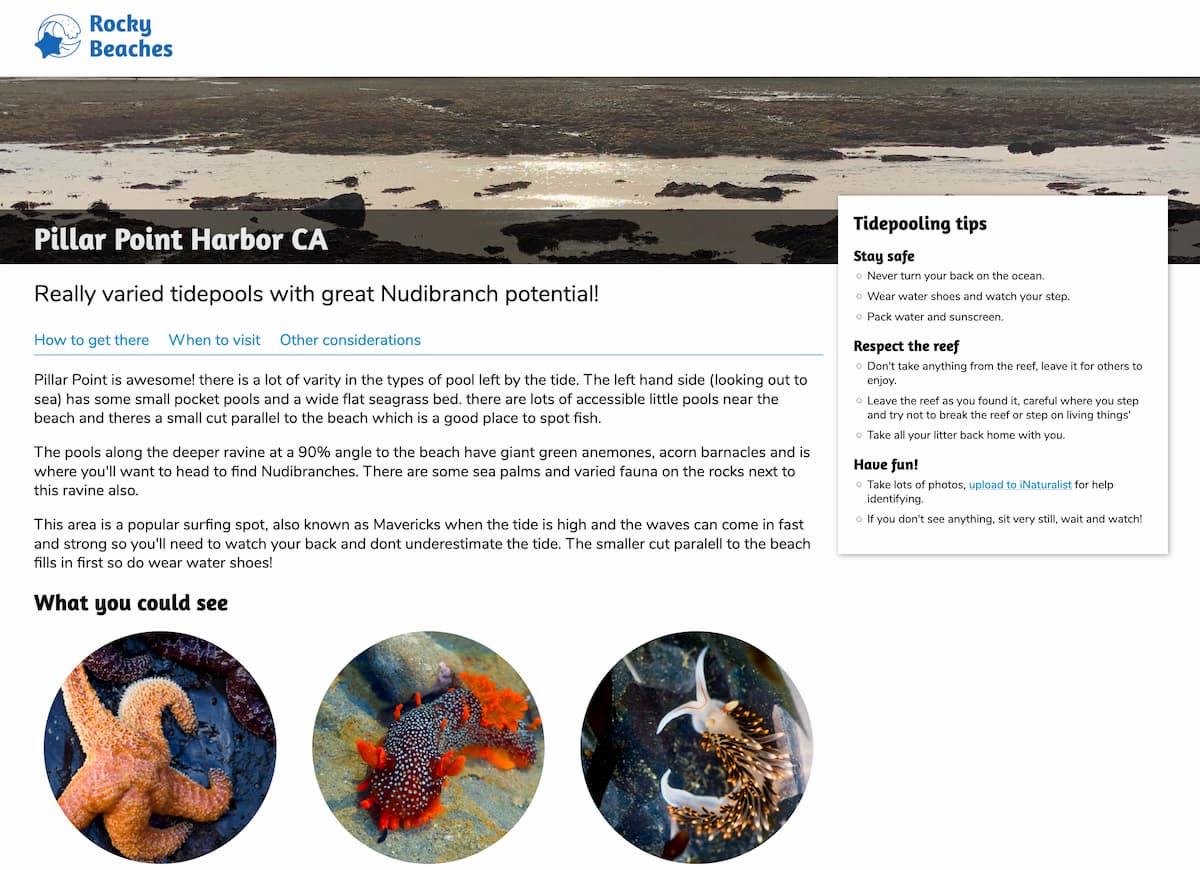Posts tagged github in Aug
Filters: Month: Aug × github × Sorted by date
1991-WWW-NeXT-Implementation on GitHub. I fell down a bit of a rabbit hole today trying to answer that question about when World Wide Web Day was first celebrated. I found my way to www.w3.org/History/1991-WWW-NeXT/Implementation/ - an Apache directory listing of the source code for Tim Berners-Lee's original WorldWideWeb application for NeXT!
The code wasn't particularly easy to browse: clicking a .m file would trigger a download rather than showing the code in the browser, and there were no niceties like syntax highlighting.
So I decided to mirror that code to a new repository on GitHub. I grabbed the code using wget -r and was delighted to find that the last modified dates (from the early 1990s) were preserved ... which made me want to preserve them in the GitHub repo too.
I used Claude to write a Python script to back-date those commits, and wrote up what I learned in this new TIL: Back-dating Git commits based on file modification dates.
End result: I now have a repo with Tim's original code, plus commit dates that reflect when that code was last modified.

sethmlarson/pypi-data (via) Seth Michael Larson uses GitHub releases to publish a ~325MB (gzipped to ~95MB) SQLite database on a roughly monthly basis that contains records of 370,000+ PyPI packages plus their OpenSSF score card metrics. It’s a really interesting dataset, but also a neat way of packaging and distributing data—the scripts Seth uses to generate the database file are included in the repository.
Datasette on Codespaces, sqlite-utils API reference documentation and other weeknotes
This week I broke my streak of not sending out the Datasette newsletter, figured out how to use Sphinx for Python class documentation, worked out how to run Datasette on GitHub Codespaces, implemented Datasette column metadata and got tantalizingly close to a solution for an elusive Datasette feature.
[... 2,164 words]GitHub’s Engineering Team has moved to Codespaces. My absolute dream development environment is one where I can spin up a new, working development environment in seconds—to try something new on a branch, or because I broke something and don’t want to spend time figuring out how to fix it. This article from GitHub explains how they got there: from a half-day setup to a 45 minute bootstrap in a codespace, then to five minutes through shallow cloning and a nightly pre-built Docker image and finally to 10 seconds be setting up “pools of codespaces, fully cloned and bootstrapped, waiting to be connected with a developer who wants to get to work”.
Running GitHub on Rails 6.0. Back in 2019 Eileen M. Uchitelle explained how GitHub upgraded everything in production to Rails 6.0 within 1.5 weeks of the stable release. There’s a trick in here I really like: they have an automated weekly job which fetches the latest Rails main branch and runs the full GitHub test suite against it, giving them super-early warnings about anything that might break and letting them provide feedback to upstream about unintended regressions.
Weeknotes: Rocky Beaches, Datasette 0.48, a commit history of my database
This week I helped Natalie launch Rocky Beaches, shipped Datasette 0.48 and several releases of datasette-graphql, upgraded the CSRF protection for datasette-upload-csvs and figured out how to get a commit log of changes to my blog by backing up its database to a GitHub repository.
In case you missed it: @GoogleColab can open any @ProjectJupyter notebook directly from @github!
To run the notebook, just replace "github.com" with "colab.research.google.com/github/" in the notebook URL, and it will be loaded into Colab.
Is GitHub looking to be acquired?
Raising $100 million at a rumoured valuation of $750 million is not the action of a company that wants to be acquired. http://techcrunch.com/2012/07/09...
[... 36 words]10K Apart Contest: Cheating by Compressing Your JavaScript and CSS to PNG Images. Fascinating hack: transform your JS and CSS in to coloured pixels, save the result as a PNG to benefit from PNG’s built in compression algorithms, then read the data back out of the PNG and convert it back to text using JavaScript and canvas—all to reduce the on-disk filesize when entering the 10K app competition. Alex’s GithubFinder entry is worth checking out too.
Scriptlets—Quick web scripts (via) From the prolific Jeff Lindsay, a pastebin-style tool for short server-side scripts written in Python, JavaScript or PHP that executes them within a Google App Engine powered sandbox. The Java code that implements the service is available on GitHub.

